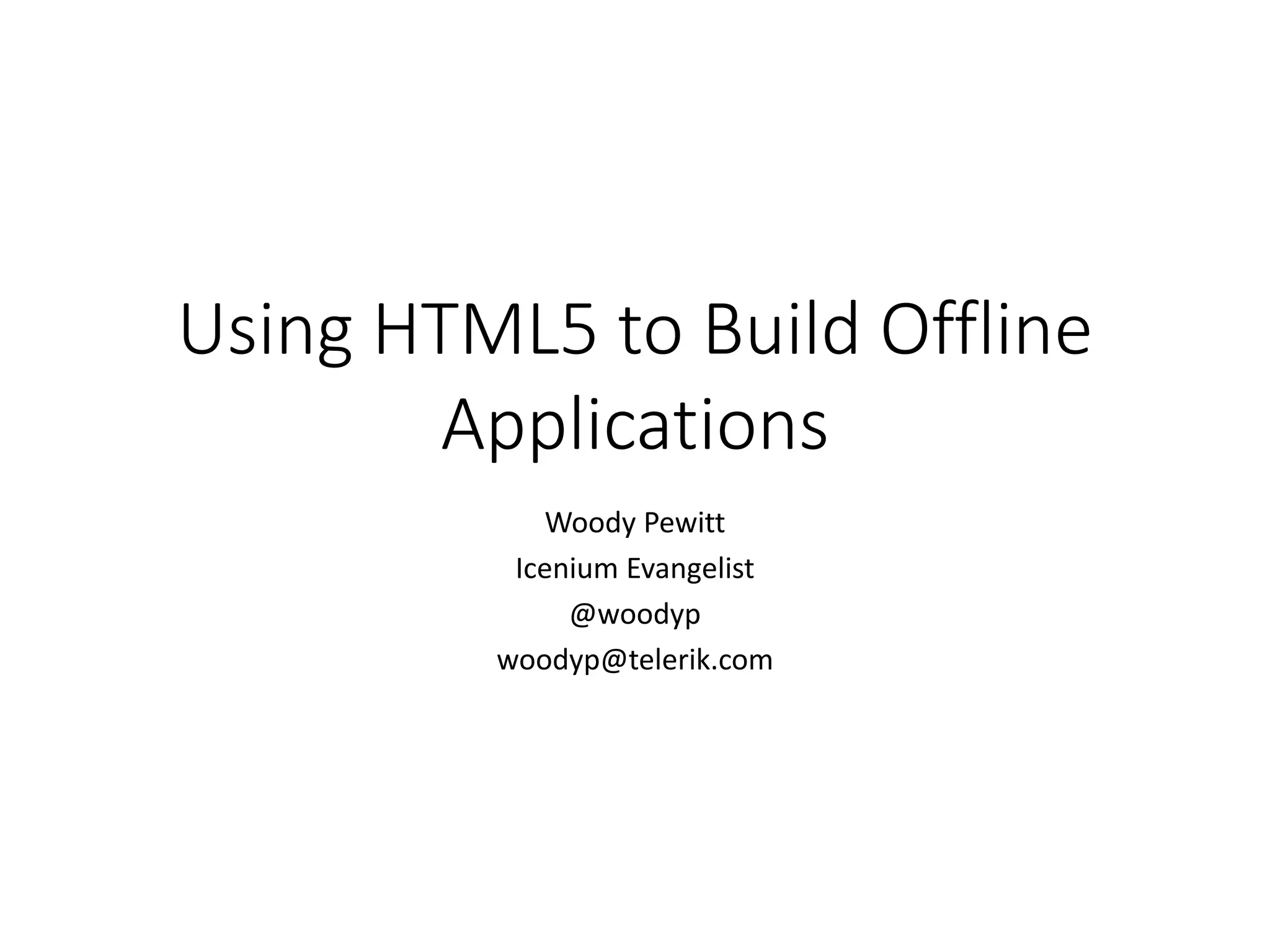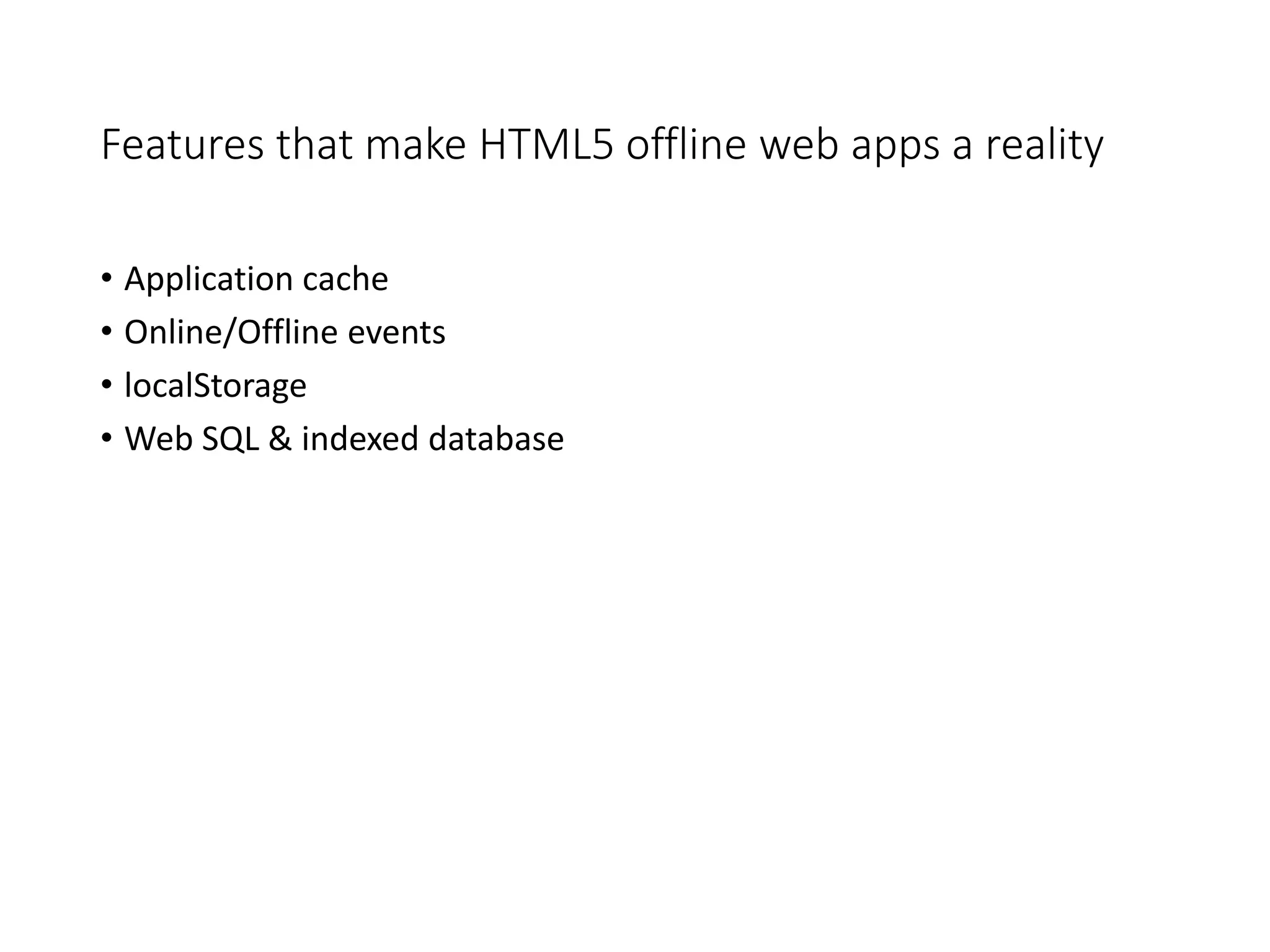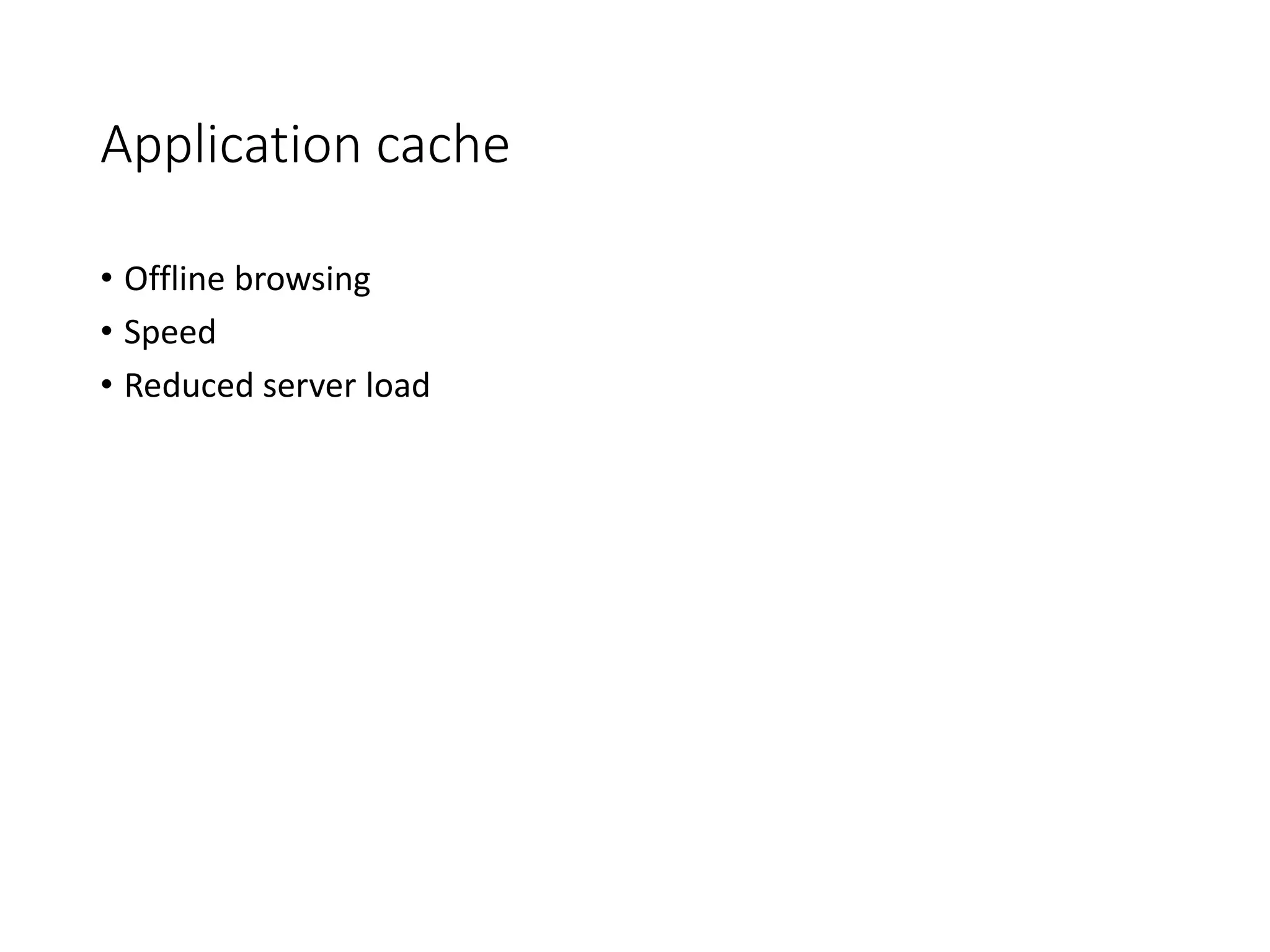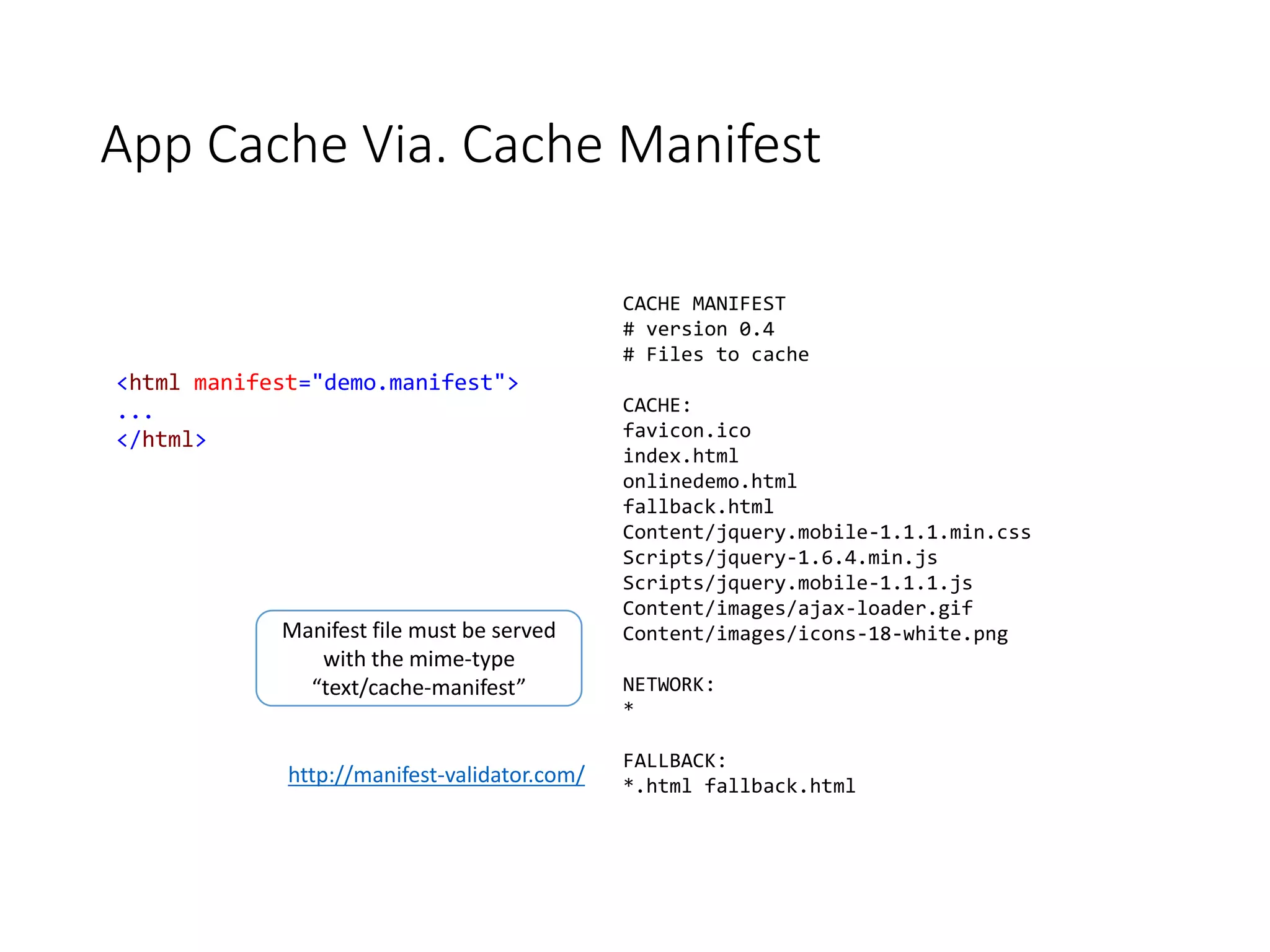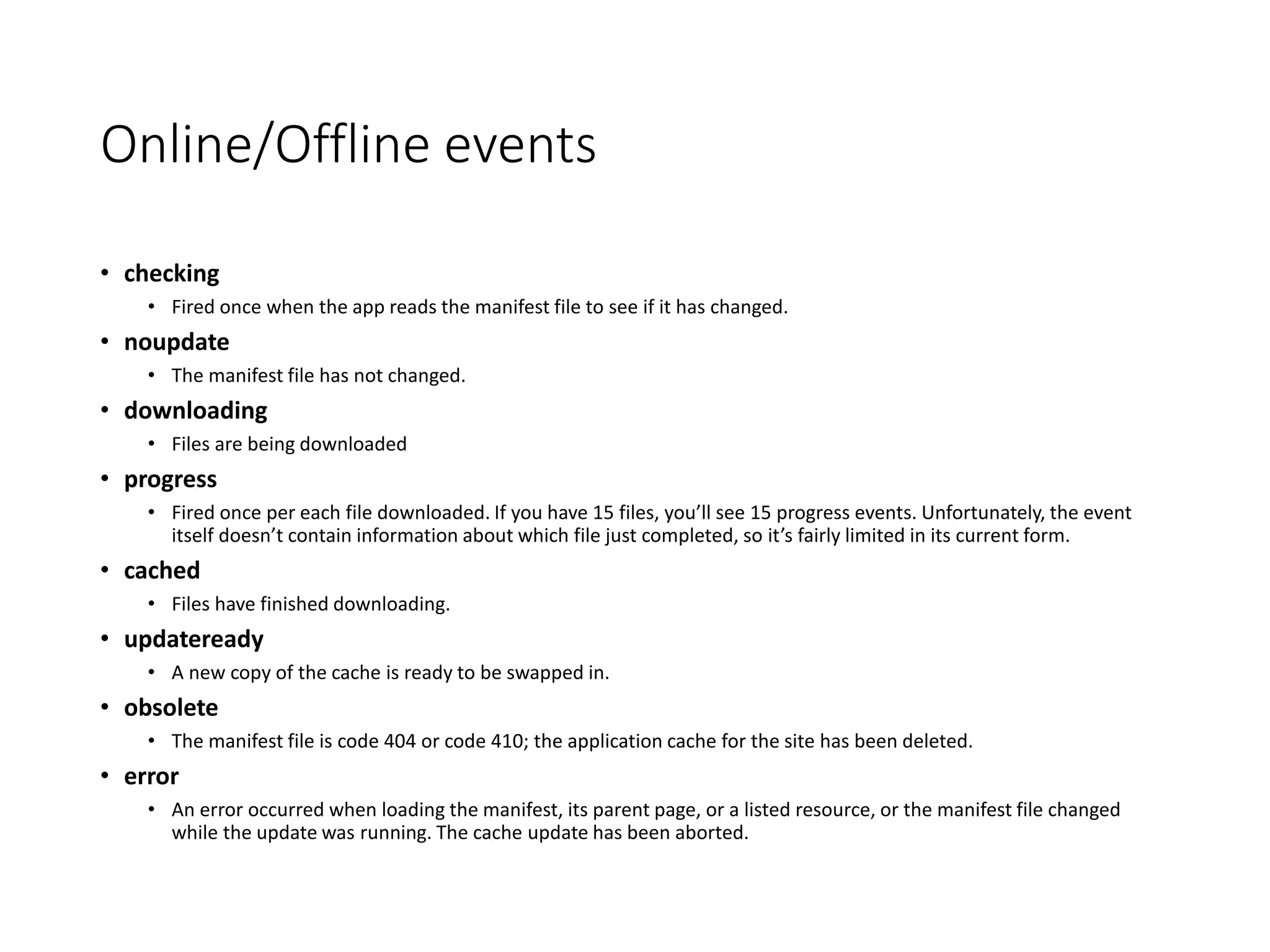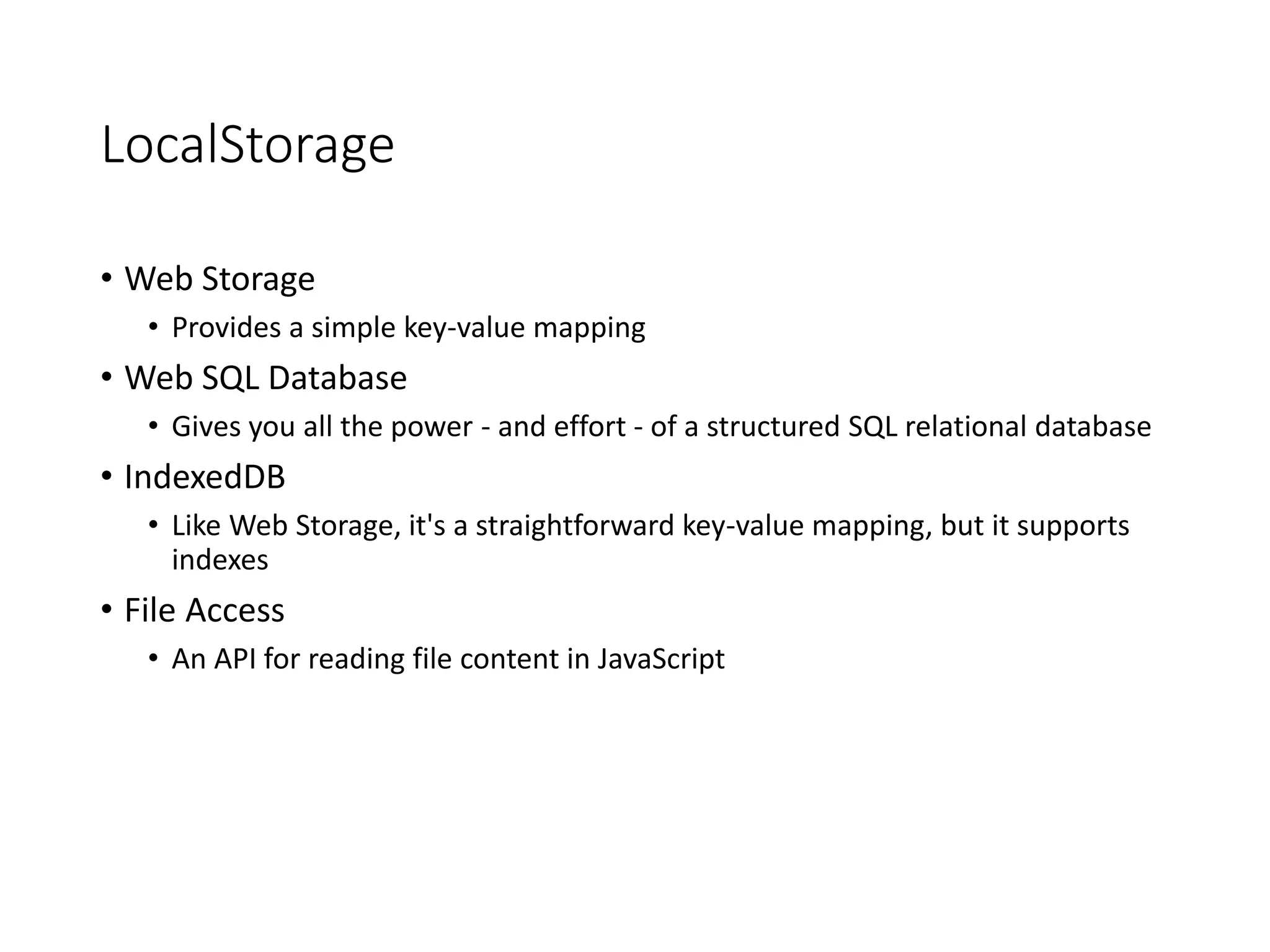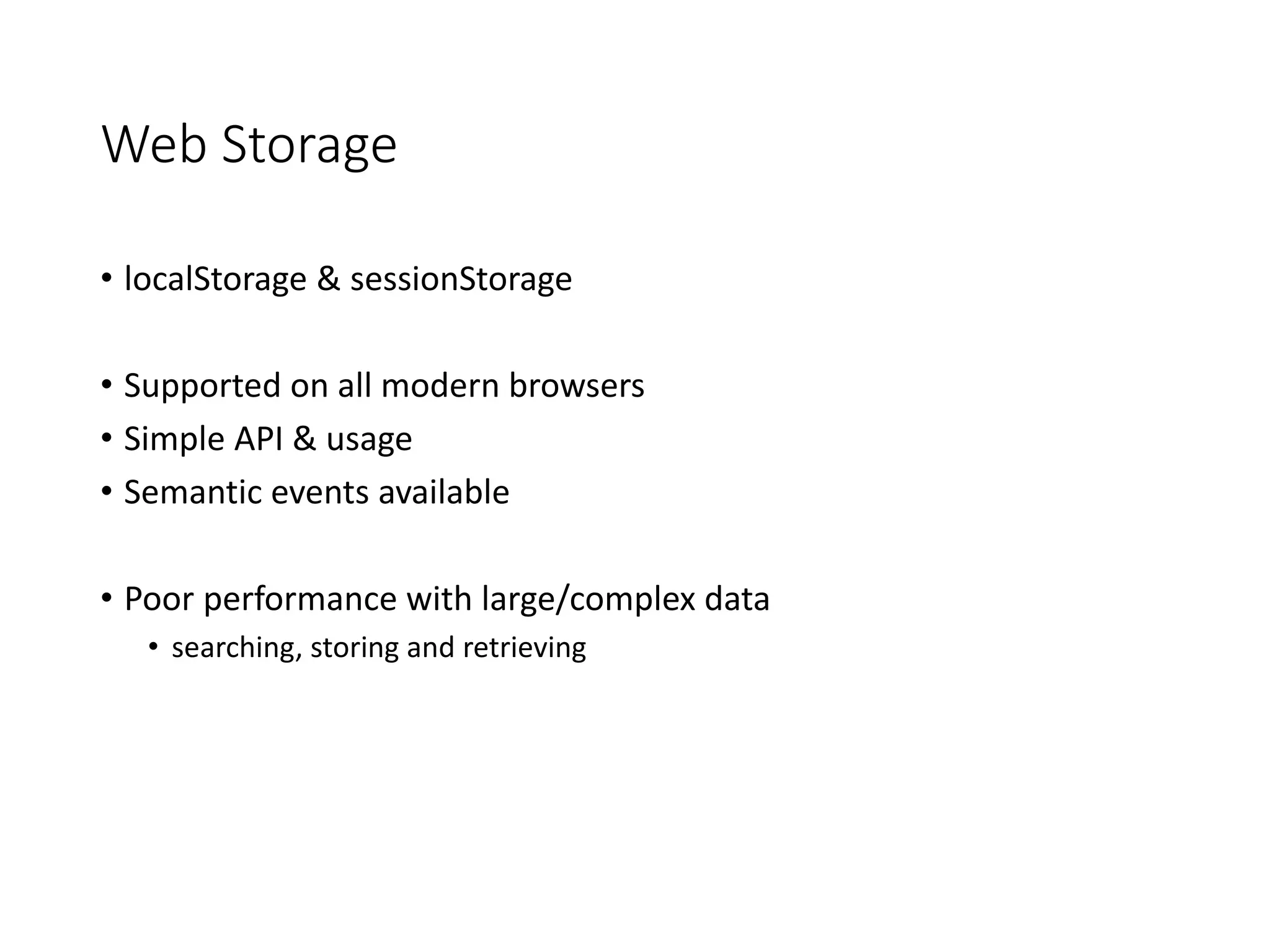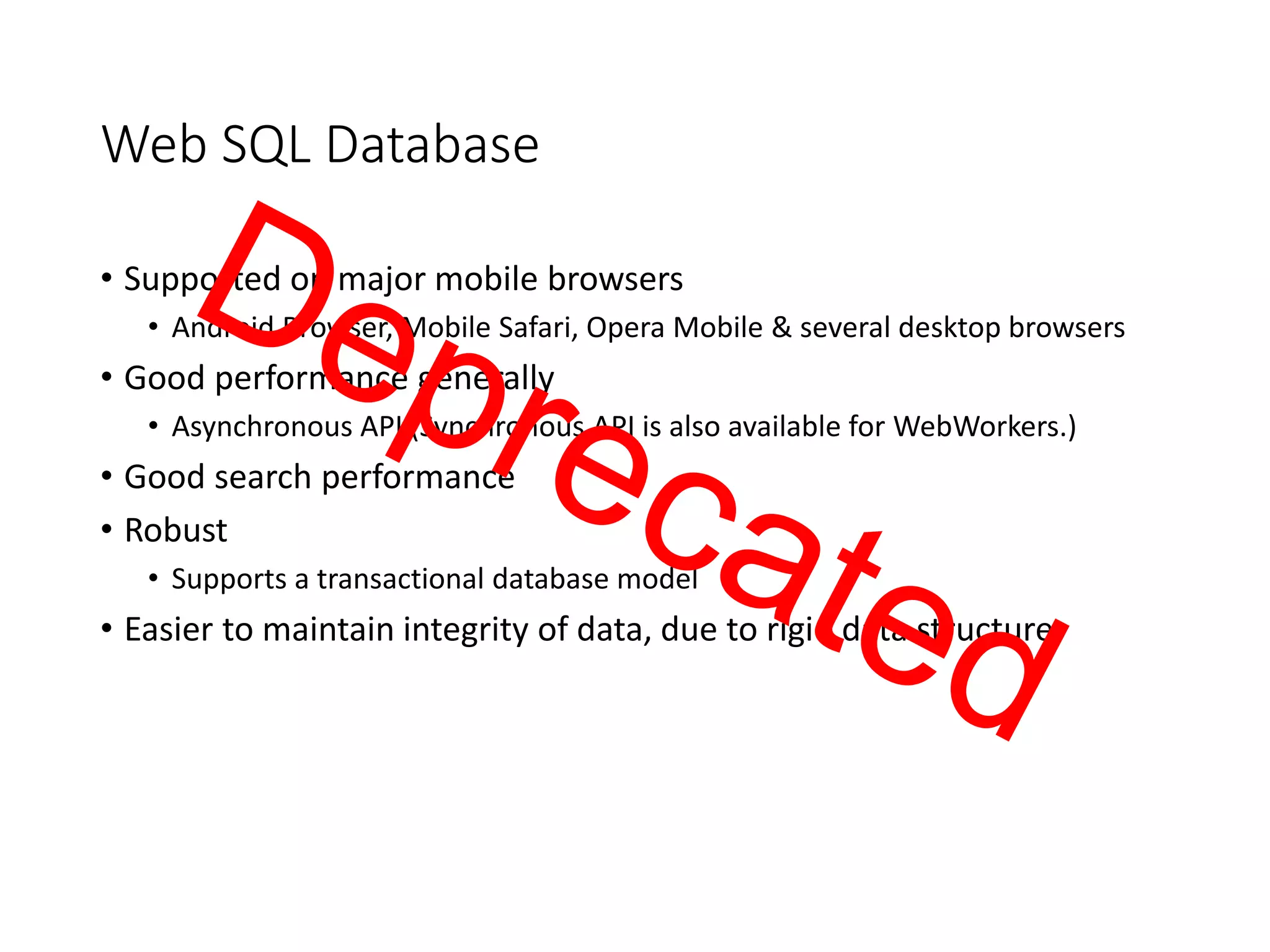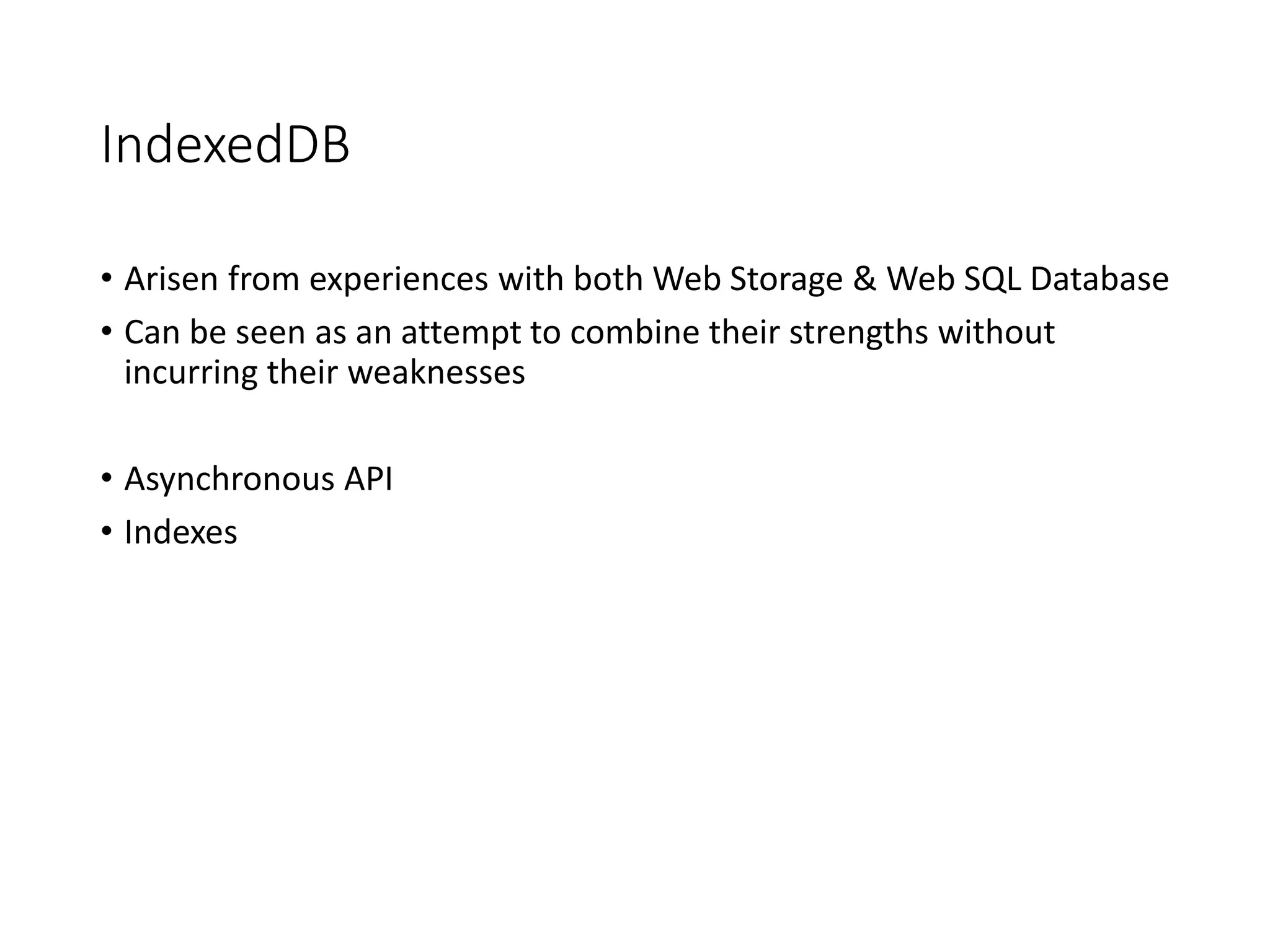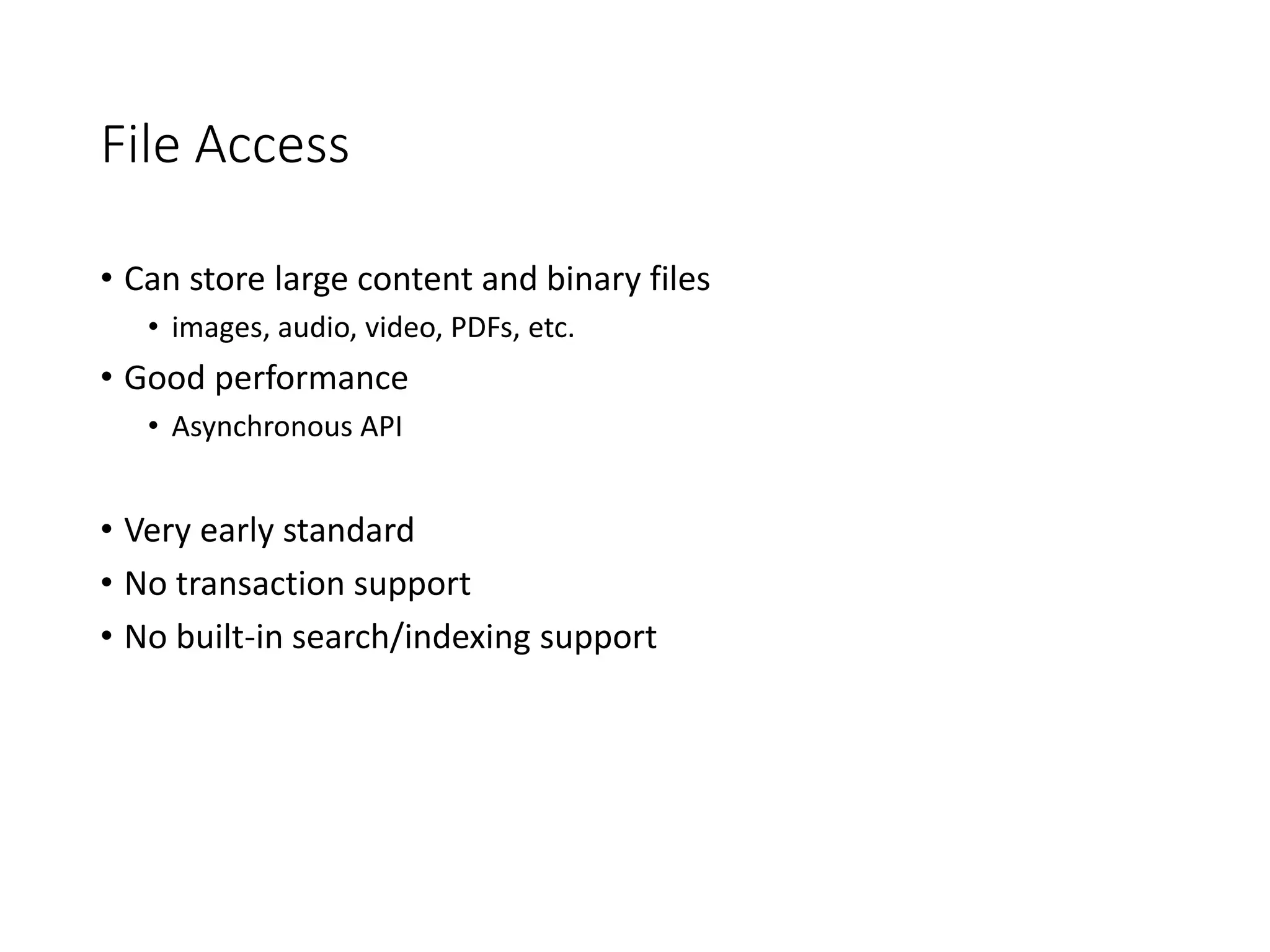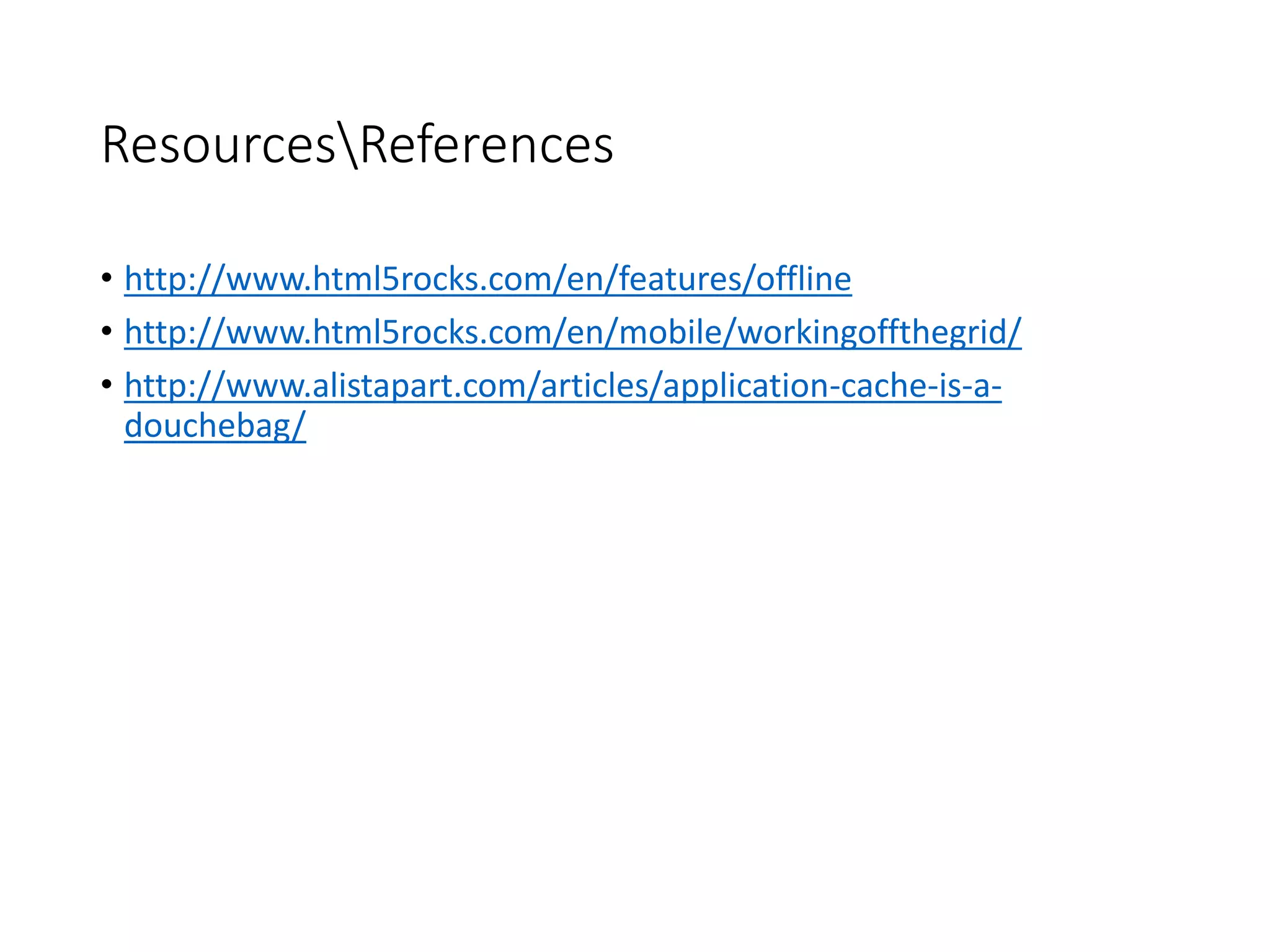The document discusses features that enable building offline HTML5 applications, including the application cache, online/offline events, localStorage, Web SQL, and indexed databases. It provides details on how each feature works and its advantages/disadvantages for offline applications. The application cache allows offline browsing and caching of files to reduce server load. Online/offline events notify of cache status changes. localStorage provides simple key-value storage, while Web SQL and indexed databases support more complex data but with greater performance costs. The document recommends different features depending on data needs and browser support.
